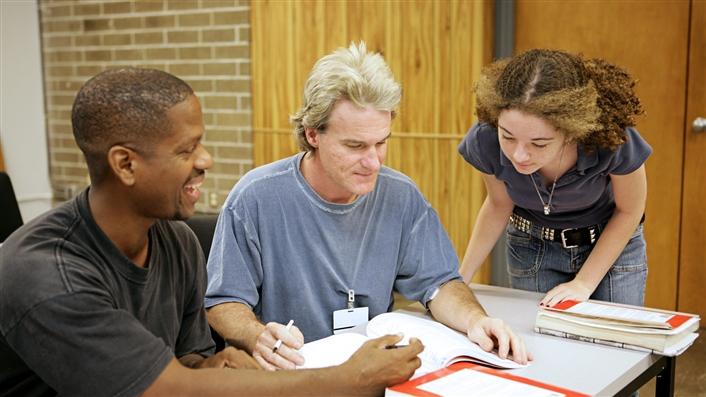Understanding how inclusive pedagogy and open pedagogy overlap and diverge provides insight into developing learning environments that welcome and encourage all learners.

This post is the first of three blogs authored by Amanda McAndrew, Caroline Sinkinson, and Deborah Keyek-Franssen of the University of Colorado. Together, these blogs explore the intersections of inclusive and open practices to inspire conversation about how we might use these pedagogies to enhance learning opportunities and experiences at our institutions.
Is an open pedagogy an inclusive pedagogy? Is an inclusive pedagogy an open pedagogy? Given so many pedagogies, is there a common thread? On the surface, we tend to think of both of these pedagogies in support of increased access to content.
So where does accessibility fit in? People often think of accessibility when they hear the term "inclusive pedagogy." After all, making content materials accessible for anyone with a physical or learning disability is clearly an inclusive practice. And when folks hear the term "open pedagogy," an obvious connection is made to open educational resources (OER) and efforts to make content available to more people at a lower cost. This is also an inclusive practice.
Yes, and...There's More than This
A core principle of inclusive pedagogy is valuing diverse experiences, perspectives, and ways of learning that contribute unique meaning to a learning environment and to the world. Inclusive pedagogical practice seeks to create equity in the learning opportunities offered, where all learners are supported in participating and contributing to a shared learning experience. In this context, inclusion means anything from providing captioned videos, to assignments that encourage and acknowledge life experiences, to teachers and students co-creating knowledge. Similarly, open pedagogy encourages reflective practice, the sharing of ideas and resources, choice in expression, and posing open-ended problems that accept many diverse solutions created by diverse learners.
Inclusive and Open Assessment Practices
Valuing learner differences includes widening the range of acceptable demonstrations of knowledge acquisition. It calls on us to reflect on and examine the implicit limits placed on diverse learners when they write papers, take tests, give presentations, or take part in group projects. Learners bring a wide range of experiences based on culture and customs, social class, gender identity, race, ethnicity, religion, ability, sexual orientation, and the infinite nuances of their personalities and individual identities. To honor and value learners' distinct ways of knowing is empowering and gives them agency to actively participate in learning experiences, explore their learning options, and produce and communicate their knowledge.
Empathy, Trust, and Respect
In essence, inclusive and open pedagogies are rooted in empathy and require that we take a humanistic approach in creating learning experiences. Empathy creates room to value multiple viewpoints. And when learners are not treated as "others," trust can be established. As empathy, trust, and respect become more prevalent, learners find the confidence to increasingly participate, engage, and take more ownership of their development and their learning. In this way, inclusive pedagogy is open, and open pedagogy is inclusive.
However, this is not to say that inclusive pedagogy and open pedagogy are the same. Rather, the intersections identified here help us understand the affordances that each practice offers. This understanding can shape the ways in which we evolve equitable learning environments in partnership with learners, instilling in them the inclusive and open values we as educators seek to cultivate.
Amanda Seal McAndrew is the Faculty Services Portfolio Manager for ASSETT (Arts and Sciences Support of Education Through Technology) on the Academic Technology Design Team in the University of Colorado Boulder's Office of Information Technology.
© 2018 Amanda McAndrew. The text of this work is licensed under a Creative Commons BY-NC-SA 4.0 International License.
